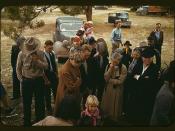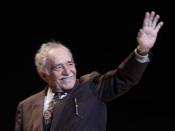The use of lies, deception and betrayal can significantly enhance a novel, keeping the reader's focus and interest throughout the course of the novel. In both "Chronicle of a Death Foretold" by Gabriel Garcia Marquez and "Alias Grace" by Margaret Atwood, the authors incorporate the use lies, deception and betrayal to keep the reader on his/her toes, adding mutually to the interest and mystery of the novels. Marquez and Atwood use lies, deception and betrayal are used to such a great extent, that it forms the foundation of both stories and contributes to the mystery and obscurity of both novels.
"Chronicle of a Death Foretold" is a narrative that outlines the events surrounding the murder of Santiago Nasar, accused of taking the virginity from Angela Vicario. Throughout the story, it is unknown whether it truly was Santiago who took Angela's virginity. The whole basis of the story revolves around this mystery.
When under pressure, one may lie, deceive or betray someone. On her wedding night, Angela furious husband returns Angela to her family. This is seen as betrayal to her family, especially in the conventions of the time where such an act brings shame to both Angela and her family. As one might expect, she is now put under a lot of pressure to tell her family who it was that took her virginity. The narrator of the story returns many years later to finally find out the truth, only to end up knowing just as much as he did when the murder occurred. However he implies that Santiago was in fact, innocent. The suggestion of Angela having lied about who took her virginity to save her own skin is subtly emphasized throughout the novel. Even if it were Santiago that took her virginity,


